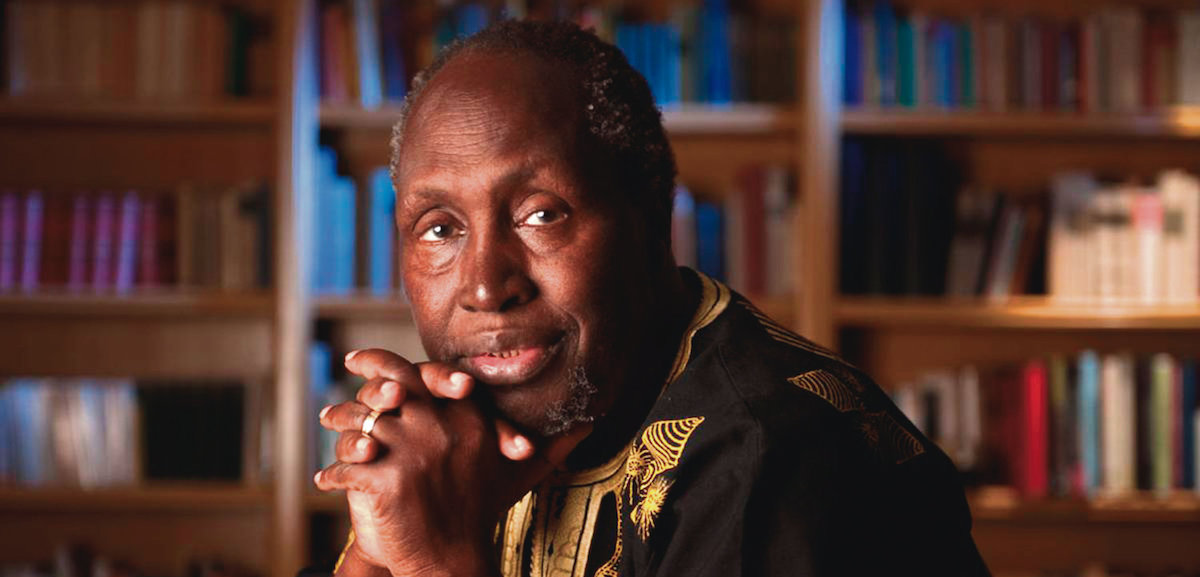Eight days after the passing of renowned Kenyan author and scholar Ngugi wa Thiong’o, his family has confirmed that he was cremated in the United States, fulfilling one of his final, personal wishes.
The celebrated author died on Wednesday, May 28, 2025, at the age of 87, after a long battle with multiple health complications, including kidney failure and reduced mobility. His daughter, Wanjiku wa Ngugi, shared the news with a poignant message:
“He lived a full life, fought a good fight. As was his last wish, let’s celebrate his life and his work. Rîa ratha na rîa thŭa. Tŭrî aira.”
The cremation was carried out in the U.S. and confirmed by his son, Mukoma wa Ngugi, on Thursday, June 6, sparking reflection and respectful debate in Kenya and across the global literary community.
“Professor Ngugi wa Thiong’o’s remains were cremated in the U.S. following his last wish,” Mukoma shared. “While it may not be tradition in Africa, we felt it was a brave, forward-thinking choice—just like him.”
Mukoma’s sentiments were echoed by those who knew Ngugi not just as a writer, but as a man who challenged convention—much like fellow author and activist Micere Mugo, who also chose cremation in 2023.
A Life That Changed African Literature Forever
Born in 1938 in Kamiriithu, Kenya, Ngugi wa Thiong’o—then known as James Ngugi—rose to literary fame for his fearless examinations of colonialism, African identity, and cultural resistance. His novels, including:
-
Weep Not, Child (1964)
-
The River Between (1965)
-
A Grain of Wheat (1967)
-
Petals of Blood (1977)
…became seminal works in postcolonial African literature.
His activism wasn't confined to the page. In 1977, he co-wrote the radical play Ngaahika Ndeenda (I Will Marry When I Want), which led to his detention without trial. While imprisoned, he penned Caitaani Mũtharaba-Inĩ (Devil on the Cross) on toilet paper—now an iconic act of literary defiance.
His short story The Upright Revolution has been translated into over 100 languages, further cementing his global influence.
Exile and Global Legacy
Exiled from Kenya for his outspoken views, Ngugi spent much of his later life abroad, holding prestigious academic positions in the UK and U.S. He was most recently a Distinguished Professor of Comparative Literature and English at the University of California, Irvine.
He is survived by his children, several of whom—Mukoma, Wanjiku, Tee, and Nducu—are writers themselves, continuing their father’s literary tradition.
Memorials and Celebrations Ahead
The family has indicated that a celebration of life is in the works, with events planned both in Kenya and the United States to allow admirers from all over the world to pay their respects.
Further details are expected to be shared by Nducu wa Ngugi, who is helping coordinate the commemorations.
A Bold Final Chapter
Ngugi’s choice to be cremated, though untraditional by Kenyan standards, is consistent with his lifelong resistance to norms, his embrace of new ideas, and his unwavering belief in individual autonomy.
His final act, like his writing, leaves a lasting message: truth, courage, and cultural evolution are worth fighting for—even in death.

